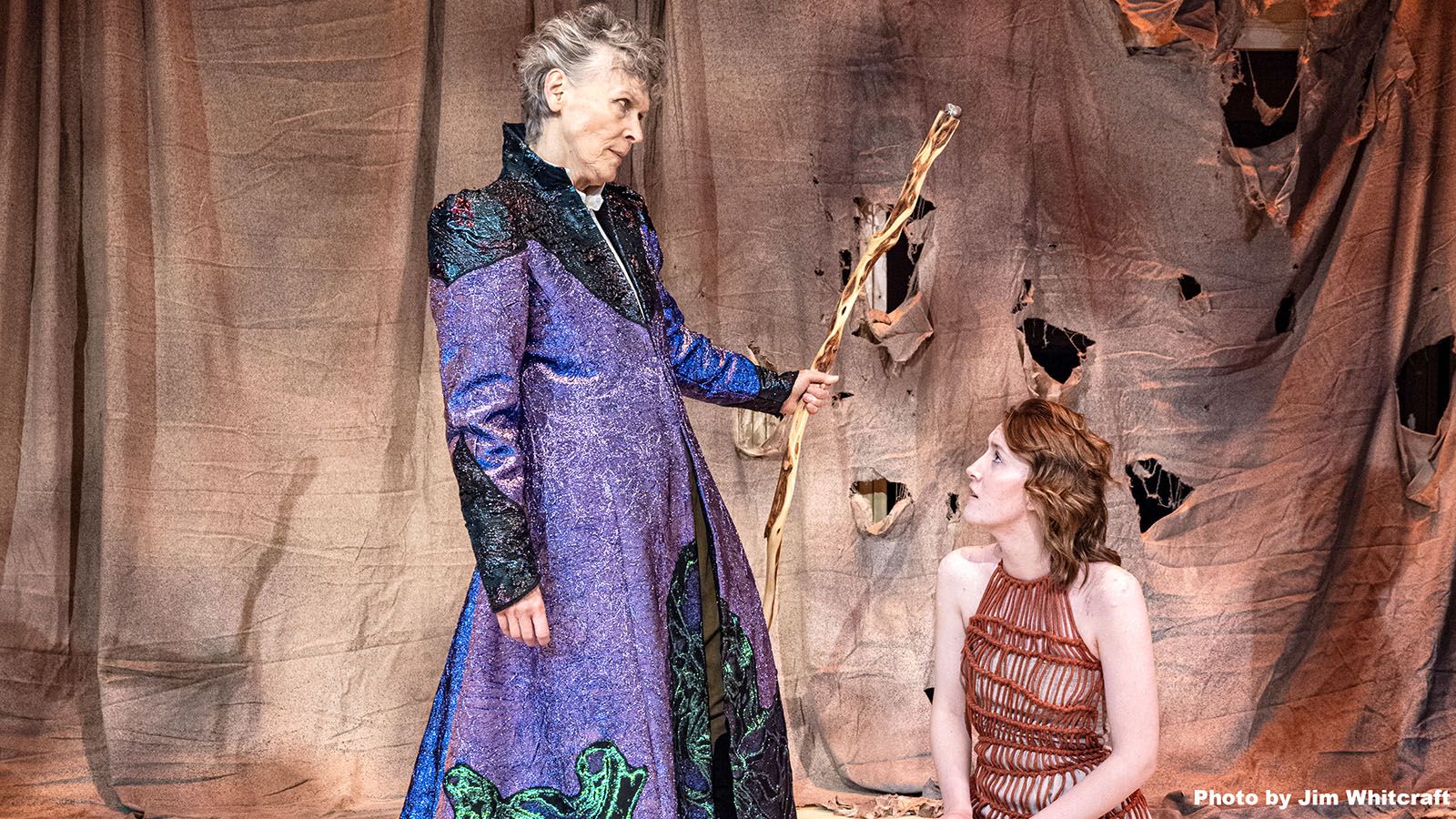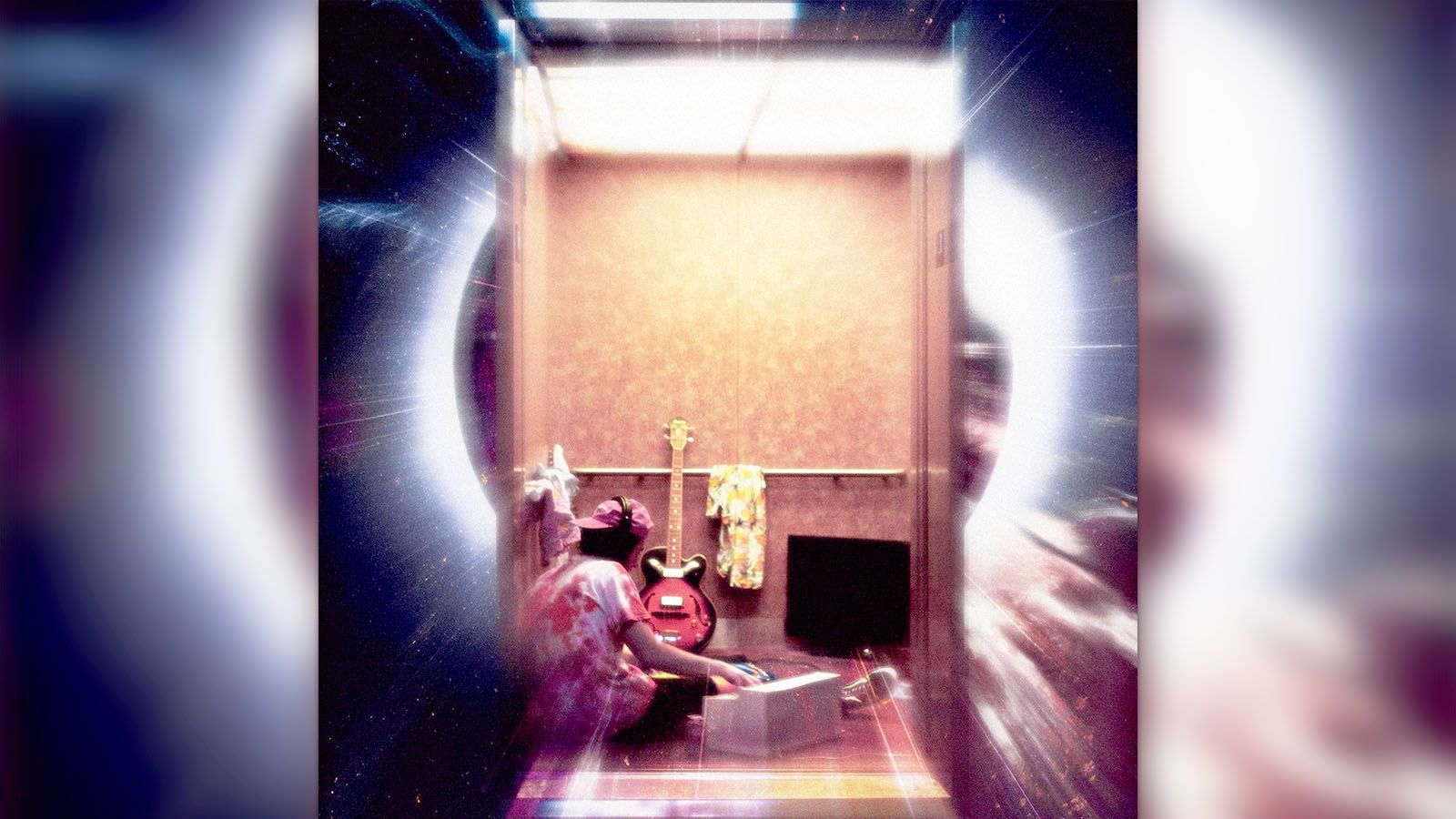“In the commonwealth I would by contraries,
Execute all things, for no kind of traffic,
Would I admit; no name of magistrate…”
The Tempest – Act II, Scene I
These cryptic words rattled through my head one October morning as I prepared for my workday. It wasn’t my day job that drew my focus. It was the event planned for that evening, in which I would audition for Purdue University Fort Wayne’s production of William Shakespeare’s The Tempest.
It had been four decades since I had auditioned for the stage, and I felt unprepared. I knew I could nail the delivery, but I was having a hard time keeping the phrases in the right order without the script in front of me.
The Tempest, which follows the usurped Duke of Milan and sorcerer Prospero who seeks revenge on his treacherous brother from a remote island, will be performed at PFW’s Williams Theatre, opening Friday, Feb. 16.
Trying out
‘The Tempest’
PFW Department of Theatre
8 p.m. Friday-Saturday, Feb. 16-17
2 p.m. Sunday, Feb. 18
8 p.m. Thursday-Saturday, Feb. 22-24
Williams Theatre
2101 Coliseum Blvd. E., Fort Wayne
$5-$18 · (260) 481-6555
My decision to audition was a hasty one, originally triggered by the opportunity to write this article for Whatzup and reinforced by my long-forgotten focus on The Bard’s work while pursuing a rather impractical English Literature degree in the 1980s.
The role I was trying for was Gonzalo, a small but important part, requiring little of the challenge in portraying the protagonist, Prospero.
I recently caught up with the director, Jeff Casazza, and we talked about how Prospero relates to the character of Macbeth, from Shakespeare’s Scottish play of the same name.
“It’s probably my favorite Shakespeare play,” Casazza said. “Tempest is one of those plays that has a lot to it. I love the story, the message, everything about it. It’s about art, it’s about performance, it’s about redemption.
“I was thinking about Macbeth as well. He’s actually very relatable to Prospero. (Prospero’s) family were almost killed by his brother, and he was left to die on this island, but he doesn’t. He thinks he’s on the island forever, but he has his books about the art of magic. The island is magical, which allows good magic to … prosper. And grow.”
I thought maybe the director would see the value of an older person playing Gonzalo, a genial but ineffective adviser who is clearly past his prime. I worried that I might take a spot from a drama student who was doing this for more important reasons than I.
In the end, I didn’t pass the audition. The kindness I saw in Casazza convinced me that I might have been good enough, but he wanted to save the role for someone who needed it more. That’s what I’m telling myself, anyway.
Good vs. Evil
Luckily, my audition didn’t present nearly the challenges Prospero faced.
Entering the theater building on an unseasonably cool evening, I had very little idea what to expect. I found a group of college students in various states of preparation for the same task I came for. It was easy to spot a few theater archetypes: the brooding, intense leading man; the chirpy, energetic freshman; and the little cadre that welcomed all newcomers, including this suspiciously old fellow with gray hair and beard.
They had all done this before, and done it recently.
As we queued up in a narrow backstage hallway, taking care not to bump the lineup of Broadway show posters on the wall, the drama kids treated me with mild curiosity and friendly support. They were sympathetic to my nerves.
The connection Casazza made between Prospero and Macbeth was reinforced during the cast’s weeks of preparation.
“I’ve directed Tempest twice before, but I never thought about Prospero as a Macbeth-like character before,” he said. “I thought of him more like a David Copperfield-type magician.
“In this production he is mystical, but I focused more on the human aspects of Prospero and the potential to fall off the edge of humanity into an abyss of darkness is new to me in this production. Prospero being on the edge of evil… I hadn’t thought of that.
“The only way he can be redeemed is because of (the spirit) Ariel. He would have become Macbeth if it weren’t for Ariel saving him.”
From the cast
When it was my turn to step alone on the stage and prove myself to the director, I used the crutch of a printed script. I couldn’t keep the words in the right order in my head, but I could deliver them with passion when prompted.
It was the first time I had met Casazza. He was encouraging and strikingly kind. After passing on me for a minor role in the production, he provided some positive and useful feedback by email.
After catching up with him for this article, I got some perspective from a couple of the cast members who fared better than I at the audition.
Kara Causey plays one of the spirits on the island.
“Having the opportunity to play a spirit in The Tempest has taught me the importance of freedom, free will, compassion, and curiosity,” she said. “Playing a spirit is challenging because they are not humans.
“However, it was interesting to be able to erase everything I learned about being a human and adapt a fresh take on humans from a unique perspective. Playing this role has ignited my own imagination, curiosity, and creativity. It has also given me optimistic insight into both the chaos and beauty of life’s journey.”
Rin Ulick, who plays Caliban, a creature of the island, was also able to glean lessons.
“The Tempest was one of my favorite Shakespeare plays because of the vibrant variety of characters we see in the cast,” he said. “Caliban is a particularly interesting role because there are so many layers to him. He is not a good guy by any means, but you learn to feel for him after a while.”
An ‘Awefull’ play
The magic of Shakespeare is in how many of his plays continue to be relevant and interesting when adapted to a modern production.
“Audiences shouldn’t think that this is stodgy Shakespeare,” Casazza said. “I cut a lot of it. It should be about 90 minutes. It’s not a three-hour Shakespeare play. The storm scene is going to be flip-out awesome. You want to see a hurricane on stage? We’ll create that.
“Ultimately, it’s, ‘What does it mean to be human?’ Hopefully in 90 minutes we can celebrate humanity for all of its fantastic things and all of its horrifying things that we wish didn’t exist. I think this production has it.”
The Tempest is believed to be Shakespeare’s last play, written after he had gained some of the wisdom of age. It takes on themes of aging and the younger generation passing by.
Early on in rehearsals Casazza challenged his troupe to come up with a single word to describe the play. When the challenge was returned to him, his response was unexpected.
“My word was ‘awefull,’ in a second meaning of the word,” he said. “ ‘Awful’ is terrible, but ‘Awefull’ fills you with awe.
“The play is ‘terrible’ because it’s about terrible things, but it’s about things that have so much grandeur that we don’t even have language for it. We don’t have language for the things that are truly terrible or the things that are truly inspiring, because they go beyond our comprehension.”





